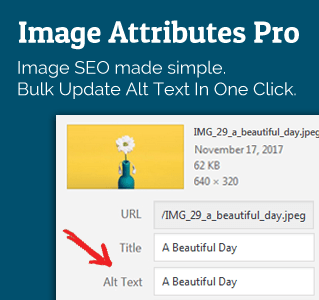
If you have ever used an Open Source Software, you would have come across the GNU license (usually shown during installation). I have never paid attention to the license, until yesterday when I was installing WordPress 2.7. Suddenly I realized that the license itself was not covered under the GNU license!
For Non Geeks (skip this if you understood the title):A GNU license is a common code issued by the Free Software Foundation, Boston, which covers Free and Open Source Software. Software covered under GNU give the user total freedom over it by providing access to its source code and liberty to modify, adapt or distribute the software. Operation systems like Ubuntu and CMS like WordPress and almost all Open Source Softwares are covered under this license.
A paradox as defined by The Oxford Dictionary on my Desktop is, “An apparently sound statement or proposition which leads to a logically unacceptable conclusion”
Extracts from the GNU General Public License version 2
Everyone is permitted to copy and distribute verbatim copies of this license document, but changing it is not allowed
Another extract that defines Free Software:
When we speak of free software, we are referring to freedom, not price. Our General Public Licenses are designed to make sure that you have the freedom to distribute copies of free software (and charge for this service if you wish), that you receive source code or can get it if you want it, that you can change the software or use pieces of it in new free programs; and that you know you can do these things.
The paradox is that, the license is intended to install in a user, the freedom to modify the software but the license that covers the software is not free to modify.
Actually the license protects itself (and all the software it covers) by removing the users rights to edit and modify it. Else, some evil minded user might start editing it and spread own copies of the license, thereby destroying the very meaning of free software. For e.g., he could add a clause that users are not allowed to adapt from his software and that would mean that the license is not free, and then there is no point in a GNU license. But it’s funny, that the license itself is not covered under GNU license. 😉
Sometimes you may find strange clauses in official documents which are normally considered as not-for-human-reading. Once I read the Blogger Terms of Service in full and found this towards the end of the document.
IF YOU HAVE READ THIS FAR THEN YOUR EYES PROBABLY HURT. ALL CAPS, WHAT WERE WE THINKING? HOWEVER, WE ARE NOT LIABLE FOR THIS OR ANY OTHER OCULAR MALADY.
(This extract is from the Blogger TOS in October 2006, but now Google have updated it and these lines are missing. I had a copy of the old TOS in my archives.)
Have you ever found anything like this? By the way, do you read the license agreements or TOS? Share your findings.






The GNU GPL permits you to make changes to the software, not the license.
Part of the GNU GPL states that you have to include a copy of the license in any derivative work and that any derivative work must be under the same license as the original. This means that you cannot make any closed source add-on or modification to any GPL’ed code. This is what people call the “viral nature” of the GPL.
I personally prefer the BSD license as it is less restrictive.
GPL licence should be included? I have seem many free softwares that just give link to the GPL licence instead of providing it. Thanks for adding to the discussion.
I think its the Viral Nature of the Licence that makes it a paradox.
Cheers
The GPL doesn’t state that you cannot sell your program or profit from it, neither it mention that the source code has to be included, though it does mention the source code has to be available in a location that is publicly accessible.
I still fail to understand, how you feel that “the freedom to modify the software but the license that covers the software is not free to modify” is a paradox.
FWIW, you _can_ link GNU license to a propreitory/closed source software, just that the GNU license is a GNU LGPL. My point about the last statement being – there are different types of GNU License, just explicitly mention the license you are discussing about.
Hey, I think you took that matter too seriously. Just one question, Can we edit the GNU license and distribute..?
What I meant was that, you can edit the softwares under GPL but you are not free to edit the license. But they say GPL means freedom. Got my point..?
BTW, this post was just meant for fun only, no offense.. lol
Hey I didn’t take it seriously, I got your point. GPL allows for freedom of the s/w, not for the license 😉 you give people the freedom to edit the license then the s/w itself won’t have the freedom, now won’t that be another thing to think on ;)?
Thats why I call it a paradox, I am glad someone thought about it seriously.
BTW, The switching guide on your site is gonna be helpful for me sometime, I had bookmarked it the day you first came in here.
Cheers.
Great to know you actually read this stuff.. you shudda been a lawyer..
I love reading official papers, those are the real professional documents, you can learn how to write professionally by reading them. Try it…
why do u think i use creative commons?
coz i’d like to read the texts meant for humans
Creative Commons is the sweet version of the whole non-human license. I dont think most people read the TOS, but many read CC license’s. Kudos to them, great idea infact